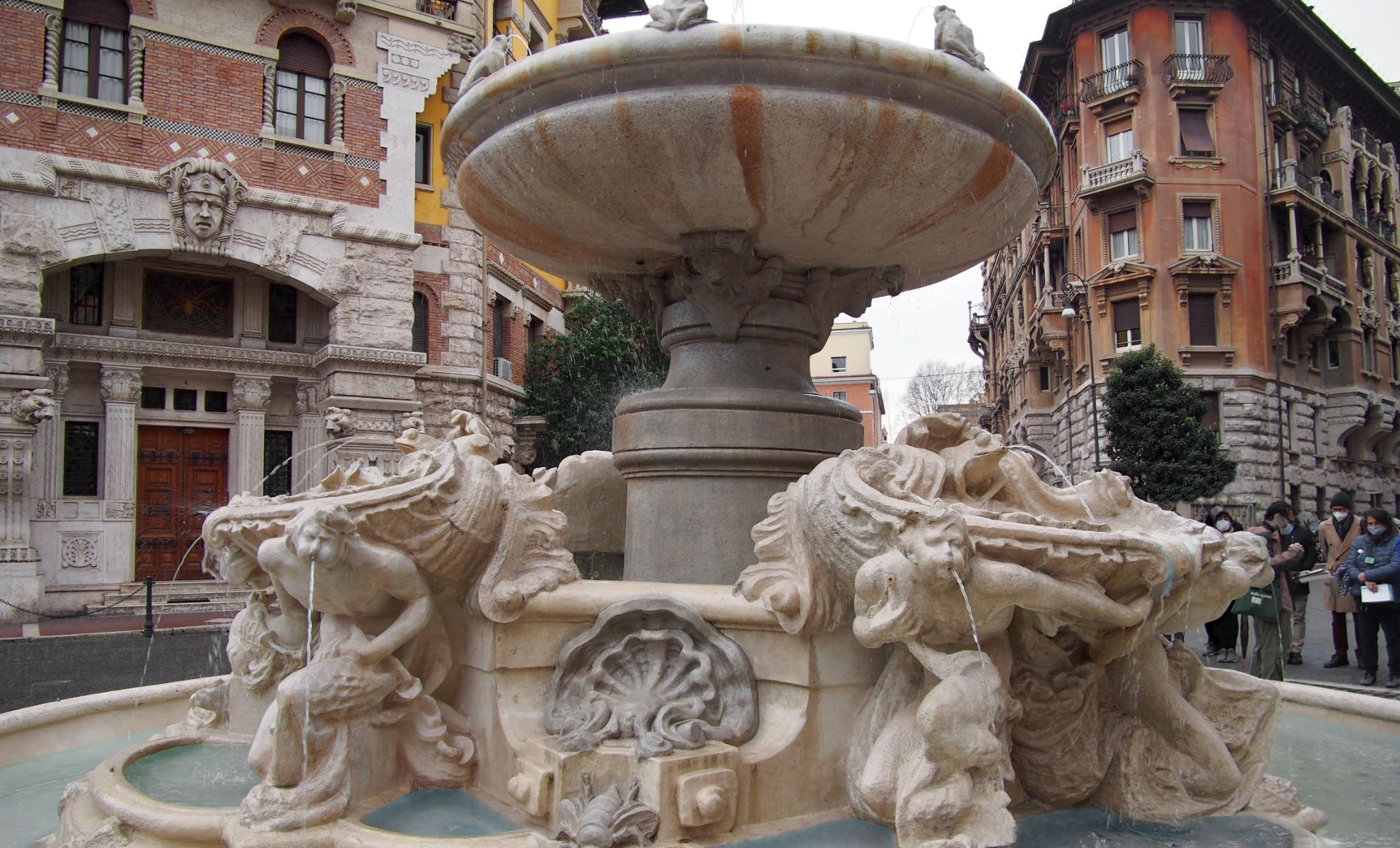The fantasy hidden behind the bourgeois calmness: like a too original relative, capable of unusual and unorthodox artistic activity, loved within narrow limits but basically tolerated only for family bonds, so Piazza Mincio is well protected by large anonymous buildings, strictly excluded from mass tourist routes, and often even forgotten by guide books, like a lumbering presence because it is unpredictable.
Ph. Roberta Venditti
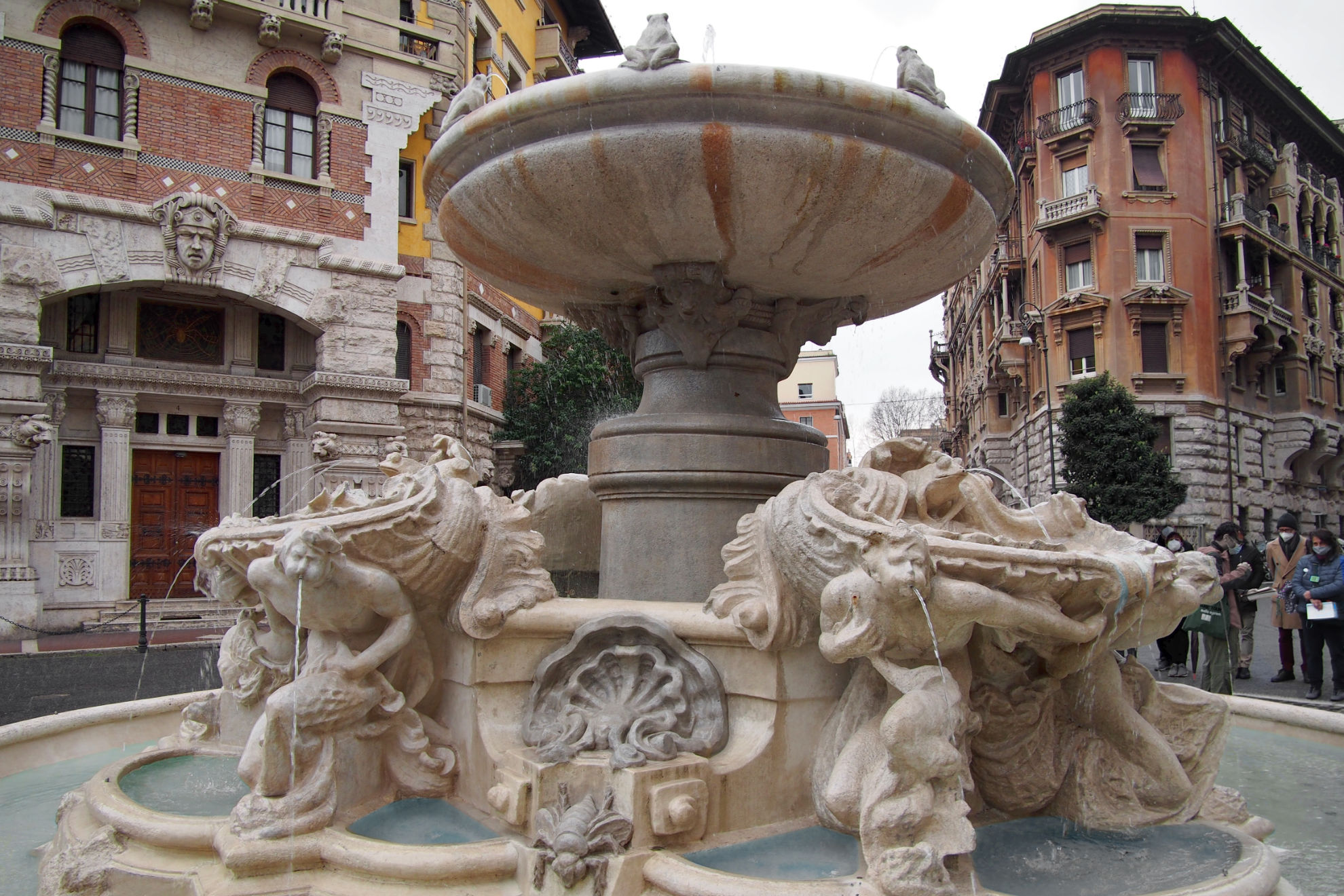
No remnants of a secular civilization here, no columns or icons of an empire far in time. Only the testimony of the exuberant genius of an architect who in the early twentieth century committed the crime of hubris: he decided to vent his imagination in the heart of classicism, unaware that the Romans would probably never forgive him.
Ph. Roberta Venditti
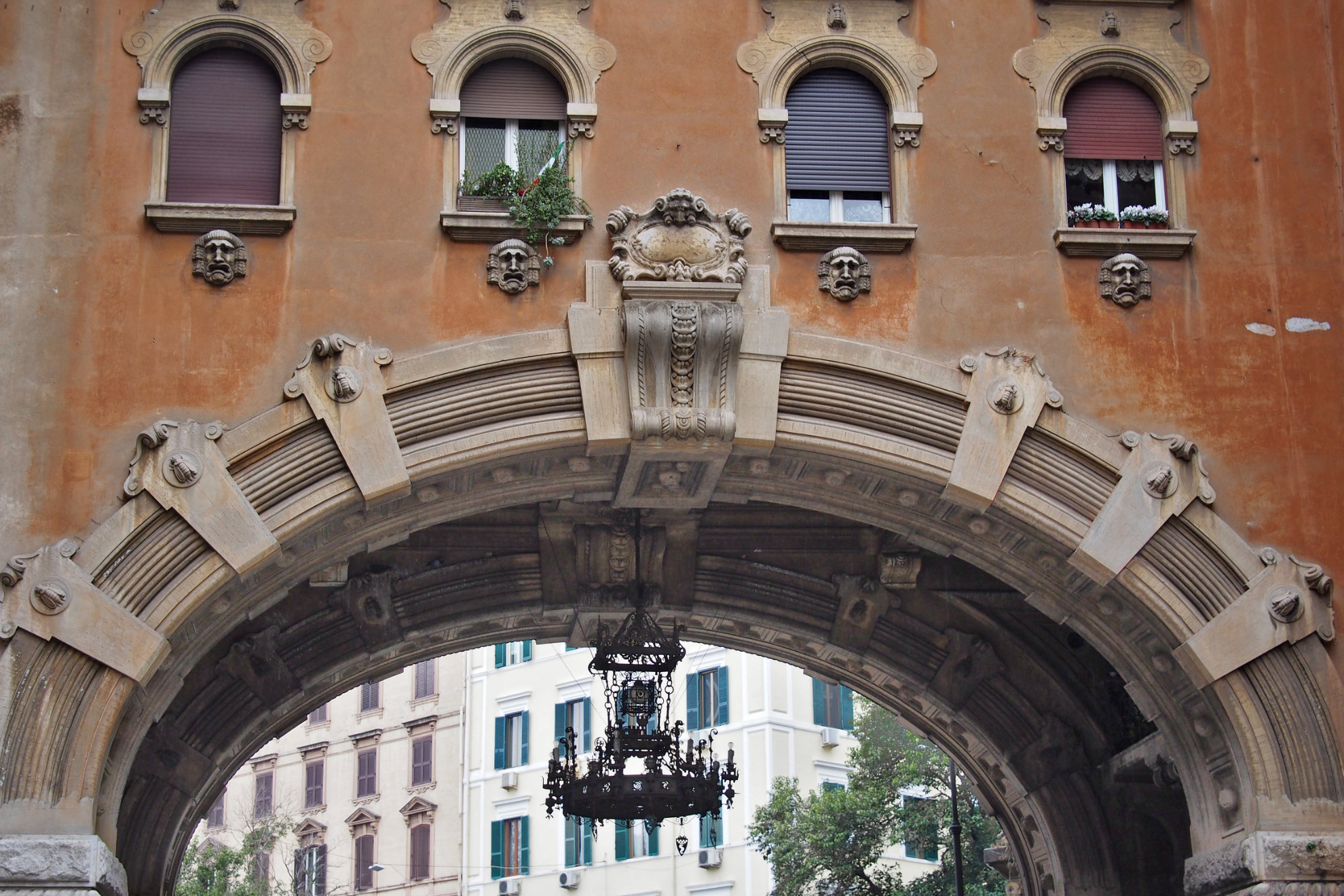
Gino Coppedé was the author of those fairy tales transformed into architecture. After all he was born and grown in Florence, found his first satisfactions in Genua and then consolidated his fame even far away, in Messina as in Seville: it is difficult for the people of Rome to let the spark of pride burst for him. And then his mind and his pencil were truly unstoppable, “too much” for canons consolidated over the centuries.
Ph. Roberta Venditti
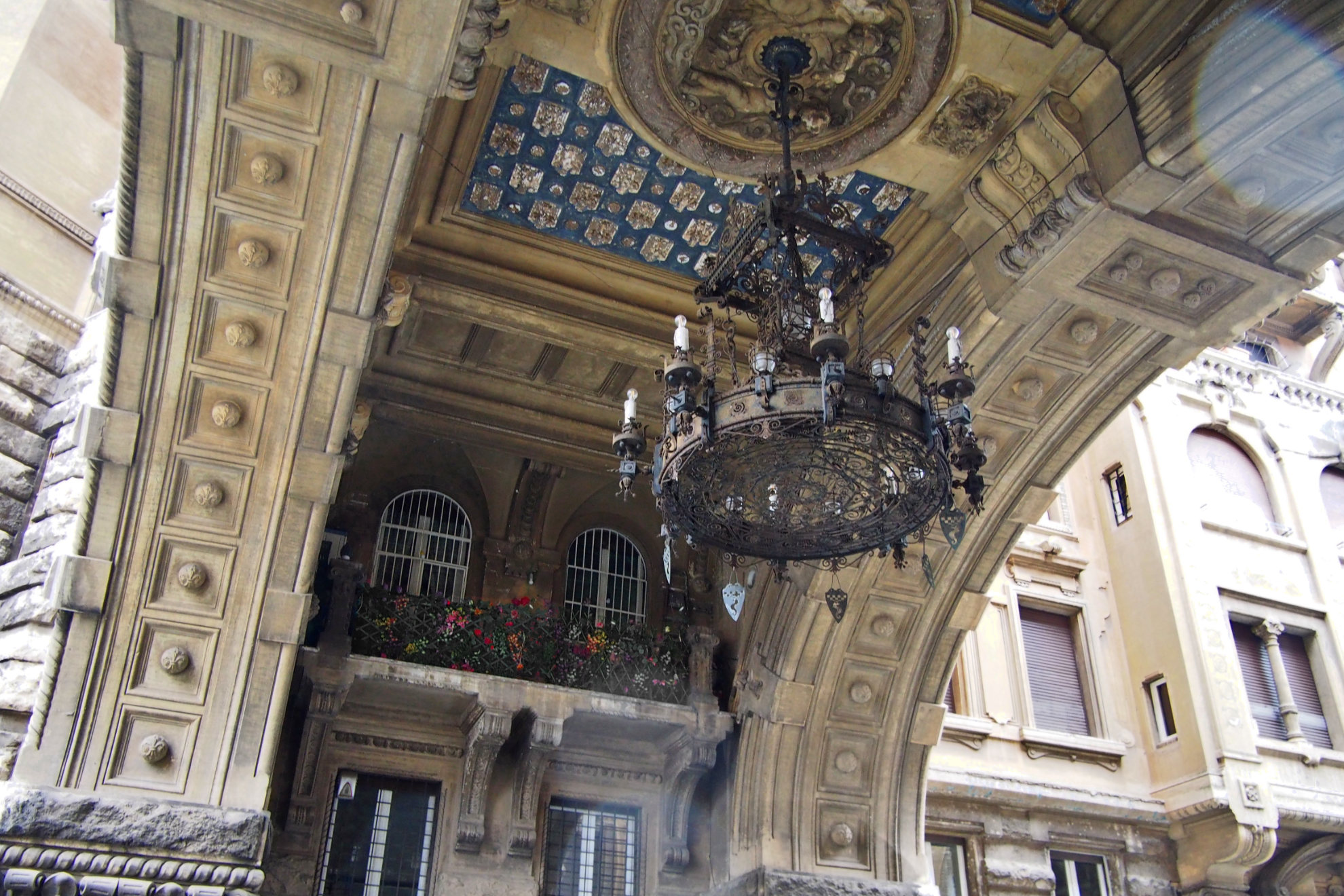
The secret corner next to Via Tagliamento is a triumph of spiders and bees, not monuments of leaders on horseback. Turrets and small sloping roofs, walls painted with gold-colored features, even a gigantic bronze candlestick hanging in the center of an arch, completely incongruous between the buildings of recent speculation and the basilicas of the history of centuries. Perhaps the only similarity is in the jets of the fountain in the center of the square, or in the gargoyles that support small semi-hidden terraces.
Ph. Roberta Venditti
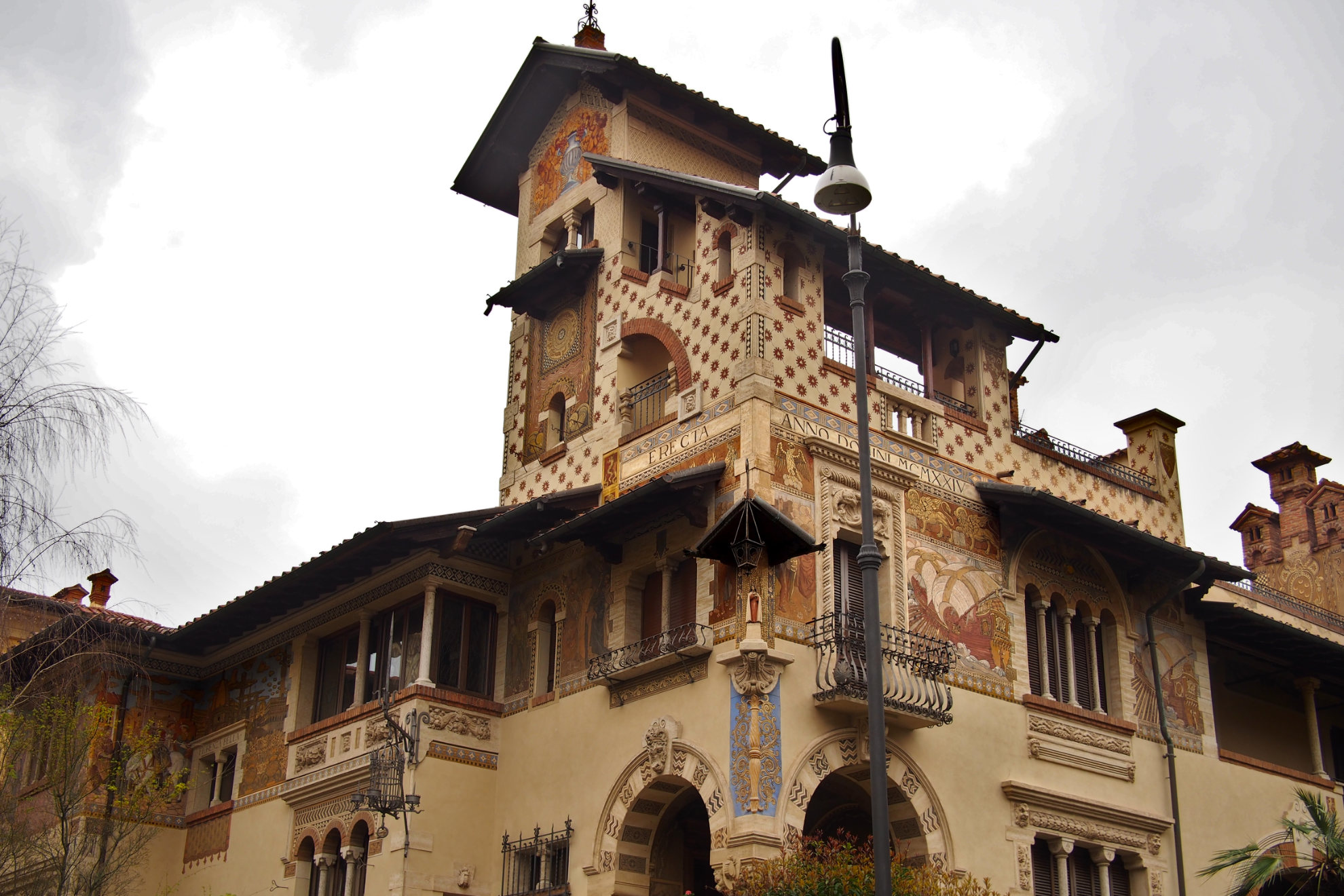
And there is no doubt that precisely this exclusion from the obligatory paths, the all-Roman idea that Coppedé is a foreign episode, an secluded experience in city life, are a confirmation of this, alongside the images of fairies and knights: this corner of the city becomes, as an inevitable prize for the brave in every fairy tale, a treasure to be discovered.

